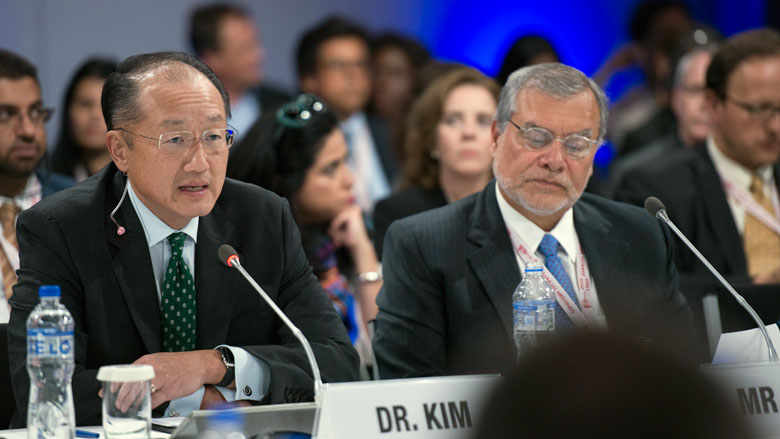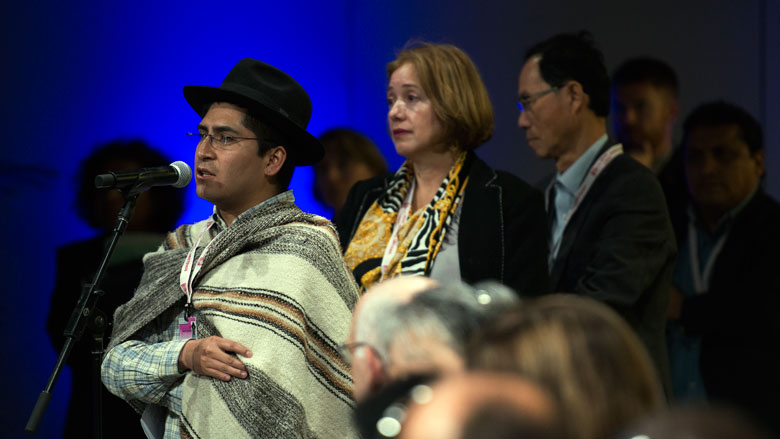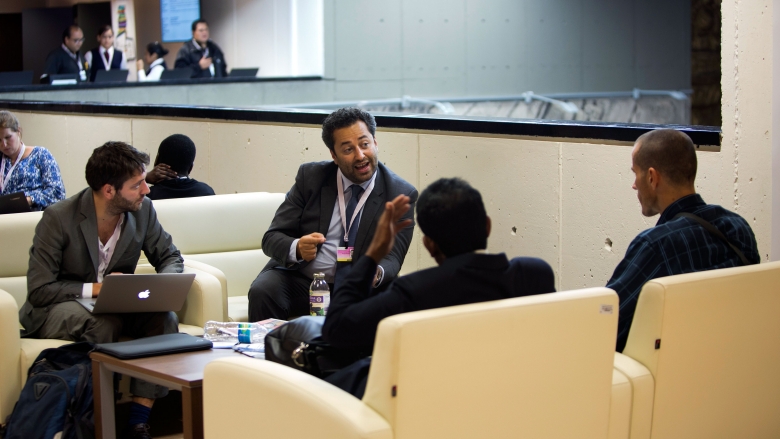The Civil Society Policy Forum (CSPF) has evolved over the past ten years into a robust platform offering important opportunities for engagement. The growth of the CSPF mirrors the evolution in the World Bank’s deeper and broader engagement with Civil Society Organizations (CSOs), which include advocacy organizations, think tanks, academics, operational, relief and development organizations. The CSPF has become an integral part of the Spring and Annual Meetings, providing an open space for civil society and other partners to debate the Bank’s policies and projects and to discuss the latest trends in development.
With close to 600 CSO representatives and leaders in attendance, the recent Annual Meetings in Lima recorded the highest number of Latin American civil society participants with more than 300 from the Latin America region including 260 from Peru. This robust participation followed a series of coordinated outreach efforts to CSOs to draw in the regional community in the lead up to the Lima meetings.
To increase participation from partner countries beyond the United States and Europe, in collaboration with the IMF, the World Bank supported the attendance of approximately sixty CSO leaders from developing client countries of the World Bank and IMF; which brings the total number of sponsored CSOs since 2003 to 555. The Civil Society Team works closely with the Regions and Global Practices to identify promising and dynamic civil society leaders who would otherwise be unlikely able to attend the Annual Meetings. Many of these Civil Society leaders serve as key speakers and spokespeople not just in the Policy Forum but in flagship and side events throughout the Annual Meetings. Notable participation of civil society in the Lima flagship events included Mr. Jose Ugaz, the Chairman of the International Board, Transparency International on our Social Inclusion Wikistage and an event on Combatting Illicit Financial Flows; Juan Alberto Fuentes Knight, Chair, Oxfam International on our Flagship on Inequality, Prosperity and Opportunity; Ziad Abdel Samad, Executive Director of the Arab Network for Development (ANND) in an event on the MENA region: Fragility in Middle Income Countries; and Carlos Bedoya, Director from Latindadd who joined a side event focused on Taxation.
The Forum venue, which was centrally located inside the National Museum, placed CSO participants in the heart of the Annual Meetings and encouraged the fluid participation of CSOs from the Civil Society Policy Forum to the Annual Meeting flagship sessions, side events and corridor interaction with delegates and Bank officials. Consequently, CSO participants were pleased to record participation of several senior Bank staff and government officials during the Forum. - including Hartwig Schafer, Vice President of Operation Policy and Country Services; Makhtar Diop, Vice President of the Africa Region; Caren Gown, Senior Director for the Gender CCSA; Laurence Carter, Senior Director of the Public Private Partnership CCSA; as well as Maninder Gill, Director of the Social, Urban, Rural and Resilience Global Practice. A number of senior government officials from Peru and across Latin America also participated in the Forum.
The broad themes that featured prominently in the main agenda of the Annual Meetings mirrored the issues debated in 45 Civil Society Policy Forum sessions, which were mostly proposed and organized by CSOs themselves, including inequality, climate change, illicit financial flows, extractives and safeguards.



